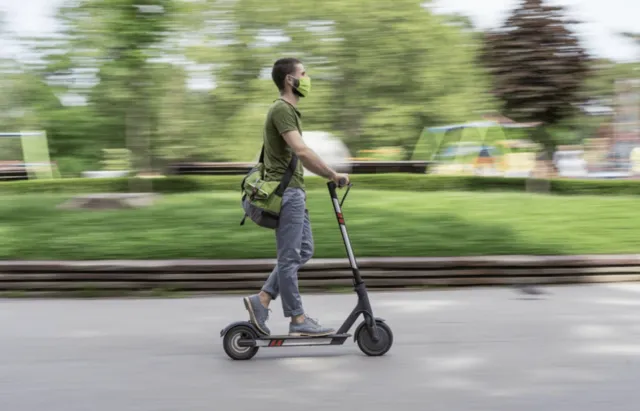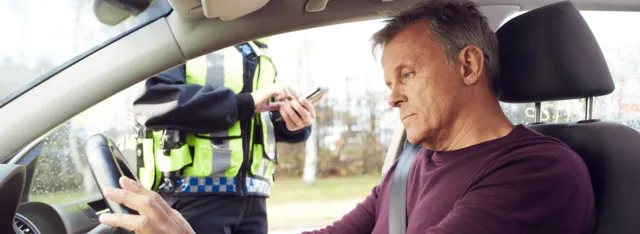Charged with Causing Death By Careless Driving? Here’s What You Need to Know.
If you have caused an accident that resulted in the death of another person, you could face charges for “causing death by careless or inconsiderate driving”. This motoring offence is covered by Section 2B Road Traffic Act 1988.
The creation of this offence stemmed from the concern about deaths on the road and the minimal sentence permitted under the law as it was before the act was adopted. Today, causing death by careless driving carries a maximum sentence of five years imprisonment & minimum disqualification from driving for 12 months. In circumstances where the court finds that disqualification is not appropriate, the defendant stands to gain 3-11 points on his/her driving licence and may have to undertake a discretionary re-test. The offence of death by careless driving can be tried in the Crown Court or the Magistrates' court.
If you or your loved one has been charged with death caused by careless driving, you should engage a motoring solicitor immediately. This life-changing incident isn’t made easy by the court visits and the thorough investigations that are undertaken prior to charges being brought.
Attending a police interview without caution and an experienced driving offence solicitor or accredited Police Station Representative puts you at greater risk of being charged or of making statements you might later regret.
A specialist solicitor who deals with driving offences knows how to present mitigating circumstances and can, in many cases, reduce the penalty, or perhaps prevent a defence which avoids a conviction.
I represent defendants in situations like these. If you are charged with causing death by careless driving, call me at 0151 601 3743 for your free initial consultation.
Content Overview
A Comparison between “Dangerous Driving” & “Careless Driving”
What is the Penalty for Causing Death by Careless Driving?
What are possible aggravating circumstances?
What are possible mitigating circumstances?
Causing Death by Careless Driving Under the Influence of Drink or Drugs
Causing Death By Driving While Unlicenced or Uninsured
Have You Been Arrested for Causing Death by Careless Driving?
A Comparison between “Dangerous Driving” & “Careless Driving”
The standard of driving is what sets these cases apart. When your driving falls below the standard of a competent driver, it’s careless driving.
Here are some examples of careless driving:
- Driving too close to another vehicle;
- Inadvertently running a red light;
- Getting into another vehicle's path after emerging from a side road;
- Being distracted while tuning a car radio;
- Using a hand-held cell phone or other electronic equipment
- Being distracted by smoking or other similar activities.
For dangerous driving, it must be proven that the standard falls far below what is expected of a competent driver. A person causing death by dangerous driving may be sentenced to a maximum of 14 years imprisonment, an unlimited fine and obligatory disqualification for a minimum of 2 years.
Here are some examples of dangerous driving:
- Speeding or going too fast;
- Overtaking dangerously;
- Driving when unwell, e.g. injured;
- Driving with the knowledge that the vehicle is defective or unsafe;
- Driving after consumption of drugs or alcohol;
- Driving in an emergency lane;
- Disregard to pedestrians or those nearby
What is the Penalty for Causing Death by Careless Driving?
The maximum penalty for this offence is 5 years imprisonment with a driving disqualification of a minimum of 12 months. However, you will likely receive a lesser sentence if it was merely an instance of a momentary lapse of concentration. If your driving ended up falling just short of causing death by dangerous driving, however, you will face more severe punishments.
- Level of responsibility for death borne by the defendant;
- Whether the defendant is liable for any other crimes cited such as vehicle theft or failure to stop at the accident scene;
- The severity of the harm, such as if more than one person has been injured or killed.
What are possible aggravating circumstances?
- Having been convicted of driving offences in the past, particularly related to the manner of driving;
- Other offences committed at the same time;
- There was more than one death caused by the offence
- Besides the death(s), there is a serious injury to one or more persons
- Negligent behaviour, including failing to stop at the scene of the accident or falsely asserting that one of the victims was at fault.
What are possible mitigating circumstances?
When you are prosecuted for death by careless driving, your driving offence solicitor will make a case to mitigate the risks of a severe penalty or driving ban by understanding what can be proven in court based on the circumstances of the accident.
These circumstances can mitigate the said risk to some extent:
- Sudden change in road or weather conditions
- The actions of the victim or a third party contributed to the commission of the offence;
- Serious injury to the suspect because of the collision;
- If the person killed was a close friend or relative of the driver;
- The driving was in response to a proven and genuine emergency which did not provide a defence;
- The lack of driving experience of the offender contributed significantly to the likelihood of the collision and/or death;
- Personal mitigation such as a good driving record, conduct after the offence (e.g. providing assistance at the scene or showing remorse)
Causing Death by Careless Driving Under the Influence of Drink or Drugs
Under the Road Traffic Act 1988, the offence falls under section 3A. It would be necessary for the prosecution to prove that you caused another person's death by operating a mechanically propelled vehicle recklessly on a public roadway.
Additionally, the police would need to establish whether you were over the prescribed limit of alcohol or drugs at the time of the accident and whether you were unfit to drive. In addition, if your blood, breath, or urine was not provided within 18 hours of the alleged offence, you may also be convicted of this offence.
Here are the penalties for causing death by careless driving under the influence of drink or drugs:
- 14 years imprisonment;
- An unlimited fine;
- A ban from driving for at least 2 years;
- An extended driving test before your licence is returned
As the degree of intoxication increases, so does the severity of the charges (and therefore the sentence) for causing death by careless driving while under the influence of alcohol or drugs.
A case will be evaluated on its own merits, but common defences to the "careless" element of the offence include:
- A third party or another road user was at fault;
- Inadequate witnesses for the prosecution;
- Undisclosed defects on the vehicle in question; and
- Other contributing factors
To defend against drug/alcohol-related charges, there are various possible defences, including:
● Post-incident consumption;
● Private land is where the accident occurred;
● Tests were carried out improperly, such as taking breath samples, blood samples, or urine samples;
● The blood or urine sample you provided to the police was over the limit, but your blood or urine has been tested below the limit;
● There were no breathalyser printouts, blood samples, or urine samples available to you
Causing Death By Driving While Unlicenced or Uninsured
This offence is when a driver causes the death of another person by his/her manner of driving and one of the following offences are committed:
● Driving otherwise than in accordance with a licence;
● Using a motor vehicle while uninsured or unsecured against third party risks
Observe from the above elements that there is no evidence needed for dangerous driving or careless driving when the defendant is unlicensed or uninsured. When causing death by dangerous driving or careless driving, there must be evidence that your driving was at fault; with this offence, there is none.
At some point, you may not be aware that your driver's license has been revoked or your insurance has lapsed. In this case, you could be prosecuted.
The maximum sentence for this offence is 2 years imprisonment.
Routinely check that your policy documents and driving licence are current and in effect. This can help minimise the chances of prosecution if you are involved in an accident of any serious nature.
Have You Been Arrested for Causing Death by Careless Driving?
It is important to know your rights and the possible risks of saying anything without proper legal advice. You can easily make mistakes that can lead to unnecessary penalties.
When you speak with the police, you should keep the following four things in mind:
- If the police ask you any questions, you are under no obligation to answer them. Legal advice should be sought before responding to the police;
- A solicitor should always accompany you when answering police questions so you are adequately aware of the workings of the criminal justice system;
- Regardless of your lawyer preference, you are entitled to free legal representation. You can use a duty solicitor or choose one of your own;
- At the time of your arrest, the arresting officers should inform you of the specific charges against you.
They should also caution you by saying: If you don't mention something that later comes into play in court, it will harm your defence. Whatever you do say can be used as evidence in court.
Get expert advice now!
Your best course of action is to get legal advice as soon as possible. Call me at 0151 601 3743 for a free initial consultation, and let me examine the circumstances that can help you achieve the best possible outcome for your case, or improve your chances of being found not guilty.



